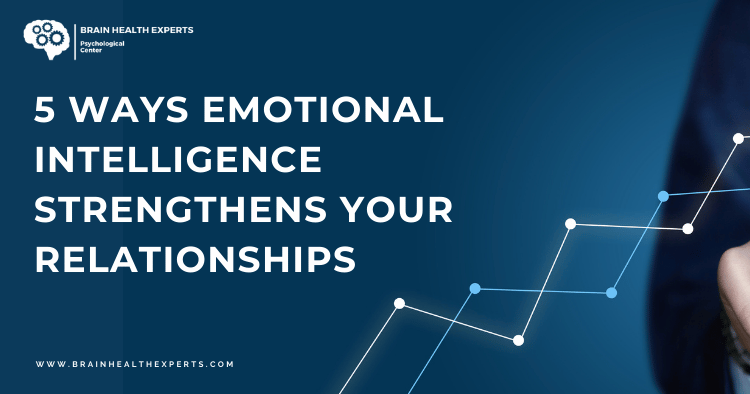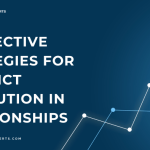Table of Contents
- Understanding Emotional Intelligence
- Enhanced Communication
- Empathy Development
- Conflict Resolution Skills
- Improved Emotional Regulation
- Better Understanding of Non-Verbal Cues
- Building Trust and Safety
- Promoting Positive Interactions
- Encouraging Personal Growth
- Long-Term Relationship Satisfaction
Understanding Emotional Intelligence
Emotional Intelligence (EI) is the ability to recognize, understand, and manage our own emotions while also being aware of the emotions of others. In relationships, this skill becomes crucial as it influences how we communicate, resolve conflicts, and empathize with one another.
According to a study published in the Journal of Personality and Social Psychology, individuals with higher emotional intelligence tend to have more satisfying and successful relationships.
Enhanced Communication
Effective communication is the cornerstone of any healthy relationship. Emotional intelligence enhances communication by allowing partners to express their feelings clearly and understand each other’s perspectives. When both partners possess emotional intelligence, they can engage in open dialogues without fear of judgment or misunderstanding.
Key Tips for Enhanced Communication:
- Use “I” statements to express feelings, e.g., “I feel hurt when…”
- Practice active listening by summarizing what the other person has said.
- Avoid interrupting or making assumptions.
“Communication is not just about talking; it’s about understanding and connecting.”
Empathy Development
Empathy is a critical component of emotional intelligence. It allows individuals to connect on a deeper level by understanding and sharing the feelings of their partners. When empathy is present, both individuals in the relationship feel seen and validated, which fosters a stronger bond.
Ways to Cultivate Empathy:
- Engage in active listening—focus on what your partner is saying without planning your response.
- Try to put yourself in your partner’s shoes and reflect on their feelings.
- Practice gratitude, which can enhance your ability to appreciate your partner’s experiences.
For more on gratitude, check out 10 Simple Gratitude Practices to Boost Positive Thinking.
Conflict Resolution Skills
Every relationship will face conflicts, but how these conflicts are addressed can either strengthen or weaken the bond. Emotional intelligence equips partners with the skills to navigate disagreements constructively. Instead of resorting to blame or defensiveness, emotionally intelligent individuals can approach conflicts with a solution-oriented mindset.
Conflict Resolution Strategies:
- Identify the root cause of the conflict rather than focusing on surface issues.
- Use a calm tone and avoid accusatory language.
- Collaborate to find a solution that satisfies both partners.
Explore more on this topic in 10 Effective Strategies for Building Resilience in Mental Health.
Improved Emotional Regulation
Emotional regulation is the ability to manage one’s emotional responses effectively. With enhanced emotional intelligence, individuals can recognize their emotional triggers and respond to them thoughtfully rather than impulsively. This skill is essential for maintaining a harmonious relationship, as it reduces the likelihood of emotional outbursts that can lead to hurt feelings or resentment.
Tips for Emotional Regulation:
- Practice mindfulness techniques, such as meditation or deep breathing exercises.
- Keep a journal to reflect on your feelings and triggers.
- Use positive self-talk to reframe negative thoughts.
For techniques on mindfulness, consider 10 Mindfulness Practices to Reduce Stress Effectively.
Better Understanding of Non-Verbal Cues
Much of communication occurs non-verbally through body language, facial expressions, and tone of voice. Emotional intelligence helps partners to better interpret these non-verbal cues, leading to a more profound understanding of each other’s feelings and needs.
How to Improve Non-Verbal Awareness:
- Pay attention to your partner’s body language during conversations.
- Notice the tone of voice and facial expressions that accompany their words.
- Regularly check in with your partner about how they are feeling.
“Sometimes, what is unsaid speaks louder than words.”
Building Trust and Safety
Trust is a vital component of any relationship, and emotional intelligence plays a significant role in its development. When partners feel understood and valued, they are more likely to trust one another. Additionally, emotional intelligence fosters a sense of psychological safety, allowing individuals to share their thoughts and feelings without fear of judgment.
Steps to Build Trust:
- Be consistent with your words and actions.
- Show vulnerability by sharing your own feelings and experiences.
- Respect your partner’s feelings and boundaries.
Promoting Positive Interactions
Emotional intelligence encourages positive interactions, leading to more enjoyable and fulfilling relationships. This can manifest in simple gestures, such as expressing gratitude or offering compliments. When partners actively promote positivity, they create a nurturing environment that strengthens their connection.
Ideas for Positive Interactions:
- Leave thoughtful notes for your partner.
- Regularly express appreciation for the small things they do.
- Create shared experiences, such as date nights or fun activities.
For more ideas on fostering positivity, refer to 10 Ways Positive Thinking Transforms Your Daily Life.
Encouraging Personal Growth
An emotionally intelligent partner supports the other’s personal growth, fostering an environment where both individuals can thrive. This mutual encouragement helps each partner to become their best selves, which ultimately benefits the relationship as a whole.
Ways to Foster Growth:
- Share goals and aspirations with one another.
- Provide constructive feedback when necessary.
- Celebrate each other’s achievements, big or small.
“Growth is a journey best taken together.”
Long-Term Relationship Satisfaction
Ultimately, emotional intelligence contributes to long-term relationship satisfaction. Research indicates that couples who communicate effectively and understand each other’s emotions tend to enjoy more enduring and fulfilling relationships. By practicing emotional intelligence, partners can navigate the ups and downs of life together, emerging stronger and more connected.
For more insights on the role of emotional intelligence in personal growth, check out 10 Ways Positive Thinking Fuels Personal Growth Journey.
Resources for Further Learning
- The Importance of Emotional Intelligence in Relationships
- Emotional Intelligence and Relationship Satisfaction
—
FAQs
What is emotional intelligence?
Emotional intelligence is the ability to recognize, understand, and manage our own emotions while also being aware of the emotions of others.
How can I improve my emotional intelligence?
You can improve your emotional intelligence by practicing self-awareness, empathy, and emotional regulation techniques like mindfulness.
Do all relationships benefit from emotional intelligence?
Yes, emotional intelligence can enhance communication, understanding, and harmony in all types of relationships, including romantic, familial, and professional.
By embracing emotional intelligence, you can significantly enhance your relationships, paving the way for deeper connections and lasting satisfaction. Remember, it’s a journey of growth, understanding, and mutual support!





